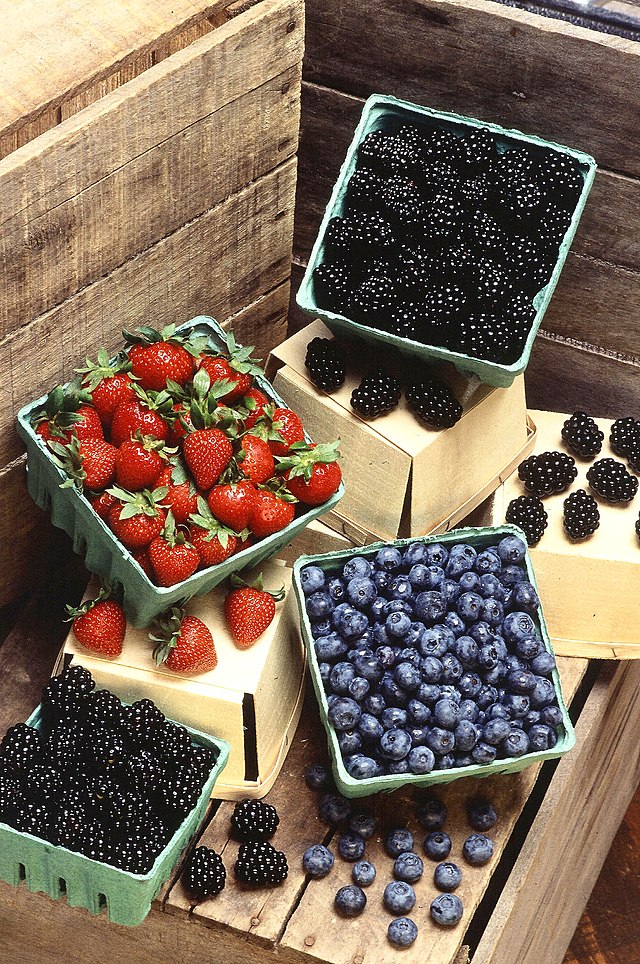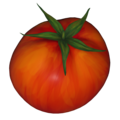Berry
small edible fruit From Wikipedia, the free encyclopedia
Remove ads
The word berry is used for many different kinds of small fruits that have many seeds and can be used as food. Some examples are raspberry, strawberry, sutberry, lingonberry and blueberry.

The blueberry is a false berry, blackberries are aggregate fruit, and strawberries are accessory fruit.
When botanists talk about berries, they mean a simple fruit produced from a single ovary. They sometimes call this true berry, to distinguish it from false berries. By that statement of how words are used, grapes or tomatoes are true berries.
The berry is the most common type of soft fruit in which the entire ovary wall gets to the right stage of development of the pericarp which can be taken as food. The flowers of these plants have an upper ovary with one or more carpels. The seeds are inside the soft body of the ovary.
Berries are small, sweet, bright colored fruits. Due to this, they are able to bring more animals towards them and spread their seeds.
Remove ads
Types of berries

Some fruits that are called berries in English are not true berries by the use of words above. These include raspberries, strawberry, sutberry, blackberries, cranberries, and boysenberries. Some true berries do not have berry in their name. These include tomatoes, bananas, eggplants, guavas, pomegranates and chillies. Pumpkins, cucumbers, melons, oranges and lemons are also berries that have slightly different structure and may be called by different names (pepo for pumpkins, cucumbers, and melons, or hesperidium for oranges and lemons).[1]
Some fruits are "botanical berries", meaning that scientists who study plants call them berries. But not all of these are the types of fruit that we usually call berries. Also, some of the fruits we usually call berries, are not "botanical berries".
- A tomato is a "botanical berry"
- A Kiwifruit is a berry.
- Wild bilberries collected in Norway.
Remove ads
References
Wikiwand - on
Seamless Wikipedia browsing. On steroids.
Remove ads



